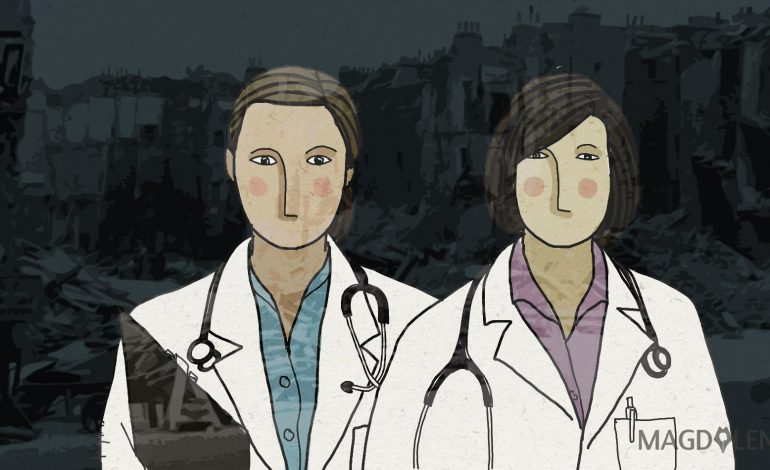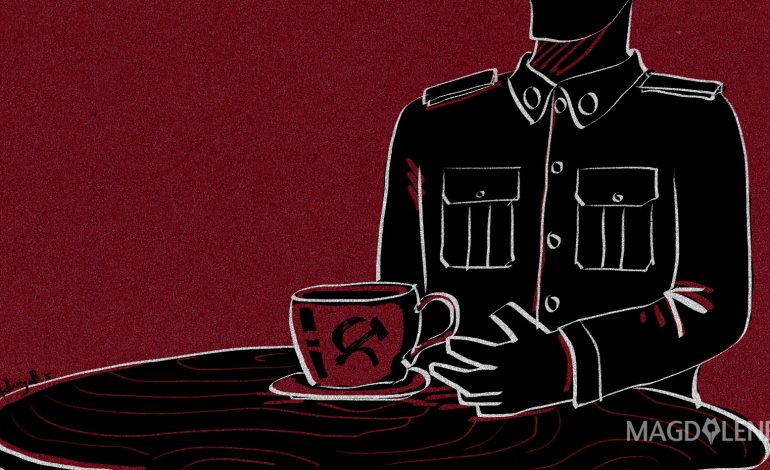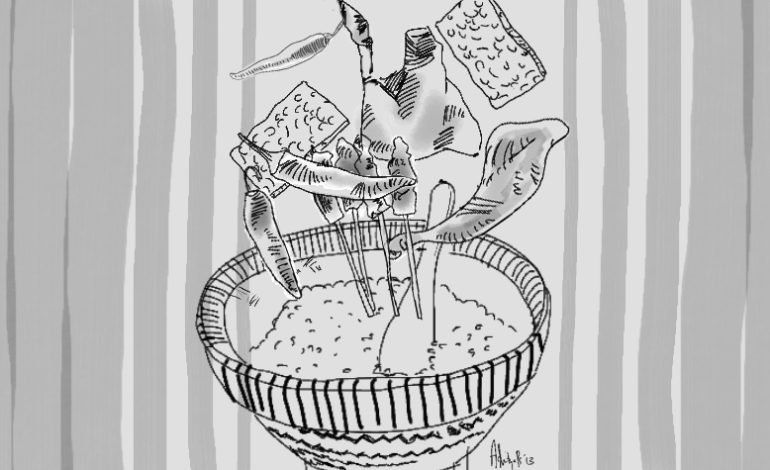Why I Do What I Do: A Doctor’s Experience in Conflict-torn Yemen

“GET DOWN! GET DOWN!!” screamed our lead logistician to all of us staff on board the boat.
It was 3rd of July and I was returning to Aden from Djibouti after a break, when we were welcomed by the sound of gunshots as we were approaching the port of Aden. It wasn’t a good omen. Upon docking, we headed to our hospital, about 35-40-minute drive from the port, but we were held at the last rebel checkpoint area for 2.5 hours before we were released. As we left the checkpoint area, a taxi was driving fast trying to catch up with us and we were very distressed by what we saw – a civilian had been shot by a fighter in the back and the bullet went through his abdomen. On the road, I had to do resuscitation and we rushed him to our hospital, for an urgent abdominal surgery.
Welcome to Aden, Yemen.
It was my fifth time to be deployed in the country by the international medical organization Doctors Without Borders/Médecins Sans Frontières (MSF). My first was back in 2013. MSF runs a 50-bed capacity Emergency Surgical Unit in Aden but since the conflict in March, the facilities have been overstretched and the number of patients we have at any given time ballooned to a little over a hundred.
My recent assignment in Yemen took place in the worst year I have seen in the country. I saw the country plunged deeper into chaos during the four months. The war between the Houthi rebels and the Southern Resistance forces supported by the Saudi-led coalition has taken a heavy toll on the Yemeni population in all aspects of their lives, including healthcare. The suffering was taken to the next level.
As the main hospital in Aden, being close to the front line, had closed down, the MSF hospital in the city was very busy providing lifesaving care. It was the largest facility, receiving most of the injured amongst the four hospitals still functioning amid the war. That kept all of the staff, international and Yemeni alike, driven in spite of the insecurities and daily risks to our lives.
In the past, the northern part of the country has been plagued by rebellion; the southern part has witnessed the rise of separatist groups. I have worked in both northern and southern Yemen before the civil war. During that time, there were fewer patients, because the MSF hospital only admitted victims of violence such as bomb blasts, gunshot wounds and alike. For road traffic accidents, which were once huge for a big city as Aden, they could go to public or private hospitals around the city. The security was fine then, so everything ran as normal in the city – healthcare was very good, with plenty of specialists and healthcare workers, complete facilities and medicines.
But since early this year, the security and humanitarian situation quickly took a turn for the worst. In April, the control tower of Aden airport was bombed, making the city inaccessible by air. Our medical teams in Aden were overstretched and were in dire need of supplies and staff relief, as the influx of patients has spiked. The only means to reach Aden by that time was by boat and the journey was 14-16 hours long, depending on weather conditions, and the waters in the Gulf of Aden could be very temperamental in the best of times.
I was one of the members of the first team that brought humanitarian and medical aid to Aden by boat during the height of the conflict. While we rejoiced when we got the green light to enter Aden, it’s not all fanfare. On the fine afternoon of 8 April, as our boat was fast approaching the port on my first trip from Djibouti, I was crushed with what I saw. Aden was no longer the town I once knew. The coastline which was normally teeming with people was deserted. Cable car lines at an amusement park in the city hung still. The flag at the port’s docking area was flown at half-mast. It was an eerie feeling as memories of the past years of a busy town and traffic jams were banished by conflict. Aden was a ghost town.
A shadow of its former self
Way back in early 2013, while living conditions in other parts of Yemen significantly decreased because of insecurity, the city of Aden was once a vibrant city, relatively stable and as foreigners we were still allowed to visit some areas that were deemed safe. We were able to visit the beach, restaurants and other public places, shop for food and visit the fish market. Staff were allowed to walk from house to hospital (about 300 meters).
“You have a good heart doctor, I pray that you will have many more years of blessings from God.”
All that had changed. Especially the hospital, which was now overflowing with patients. The inpatient ward was normally only half occupied two years ago, but in July alone it hosted 70 to 100 patients. We seldom receive mass casualties but due to the proliferation of arms and armed men in the streets, casual and indiscriminate firing became the norm, so we saw patients with gunshot wounds daily.
The MSF team in Aden has tripled its surgical procedures from 300 as of April to over 900 as of July. To cope with the increasing numbers of patients admitted due to the conflict, we also doubled our capacity – from the normal 2-3 staff (1 surgeon, 1 anesthetist, 1 operating theatre nurse) plus 1 orthopedic surgeon and 1 more general surgeon. The influx of patients forced us to double the capacity of the hospital with some patients recuperating on mattresses in our meeting room and one physiotherapy room was hastily converted into the inpatient ward. Currently, our team in Aden needs an intensive care doctor because we have many critical patients requiring specialized care and medical attention. Our other ward doctors can no longer cope with the needs.
Most of the time during my duty I had to set aside my emotions. Yemenis need OUR help. They live day by day without food, fuel, electricity and water. The medical needs of the civilians and the fact that ours is the only hospital fully functioning in Aden during the war kept my team going.
When there was heavy shelling everywhere, the explosions were coming closer and closer to the hospital, all I prayed for was the safety of my team and for the shelling to stop. Being close to the frontline, we heard the shelling and bombing up close and we felt the ground shaking. The hospital building shook, sometimes stray bullets hit the walls or shattered the windows. When encounters like these happen, we would receive a fresh influx of patients.
It was during those times of physical, psychological and physical stress that one of our patients in intensive care lit up the world I was in. He had a bad gunshot wound in his back and suffered serious complications which meant he could no longer eat solid food. He became so thin and frail. In fact I needed all the help, medication and equipment I could find for his condition. He had the worst complications amongst the patients in the ward but he was the most optimistic of the lot. He was so compliant. He didn’t normally drink milk, but he swallowed it all down because he said I told him to do so. He was the one to greet me first whenever I enter the ward and ask me how I was. Amidst the tension and depression, someone like him still has smiles to offer.
“You have a good heart doctor, I pray that you will have many more years of blessings from God,” he said. I had to leave the ward because I don’t want him and other patients see me crying.
People often ask me why I do what I do? It’s for patients like him.
Dr. Karina Marie Aguilar, a doctor-anesthetist from Muntinlupa, Metro Manila, joined Doctors Without Borders in 2012. She has been to Pakistan, Haiti, Central African Republic, and just recently returned from conflict-torn Yemen. Currently she’s in Manila waiting for her next assignment.






















